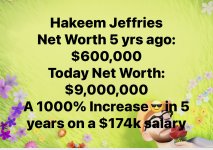Why should the poor pay ZERO and still be able to vote on how we spend our money.
Good question.
When the United States was founded, voting requirements were set by individual states, not the federal government, because the Constitution (ratified in 1788) left election rules to the states under Article I, Section 4.
At that time, many states did tie voting rights to property ownership and, implicitly or explicitly, to taxpaying, but it wasn’t a universal rule across all states, and the specifics evolved quickly.
Let’s dig into what it looked like around 1776–1789.
In the colonial era and early republic, the idea was that only those with a "stake in society, usually meaning land or wealth, should vote. Property ownership was a proxy for this, and paying taxes often went hand-in-hand, since property taxes were a primary revenue source.
For example:
- Virginia (1776 Constitution): Required voters to own 25 acres of improved land or 50 acres unsettled, or personal property worth £25. Taxpaying wasn’t explicitly stated, but property owners were typically taxpayers.
- Pennsylvania (1776 Constitution): Allowed any male over 21 who paid public taxes—property or otherwise—to vote, a broader rule than pure land ownership. By 1790, it dropped the tax requirement entirely.
- Massachusetts (1780 Constitution): Required voters to own property worth £60 or produce £3 annual income from it, roughly tied to tax contributions, though it later shifted to a poll tax payment by 1792.
- New Jersey (1776 Constitution): Granted suffrage to "all inhabitants" worth £50 (a wealth threshold), which included some taxpaying women and free black men until 1807, when property and gender restrictions tightened.
South Carolina initially required it (50 acres or a town lot), but by 1790, it allowed taxpaying freemen to vote instead.
New Hampshire in 1784 let any male taxpayer vote, property or not.
Meanwhile, states like New York (1777) limited the vote to freeholders (landowners) with £20 in property or renters paying 40 shillings annually, both tied to taxable assets.
The logic?
Property and taxes signal independence and responsibility. Tenants, laborers, or the poor were seen as too dependent on others (like landlords) to vote freely. This echoed British tradition, where suffrage was limited to the propertied gentry.
@Grok



